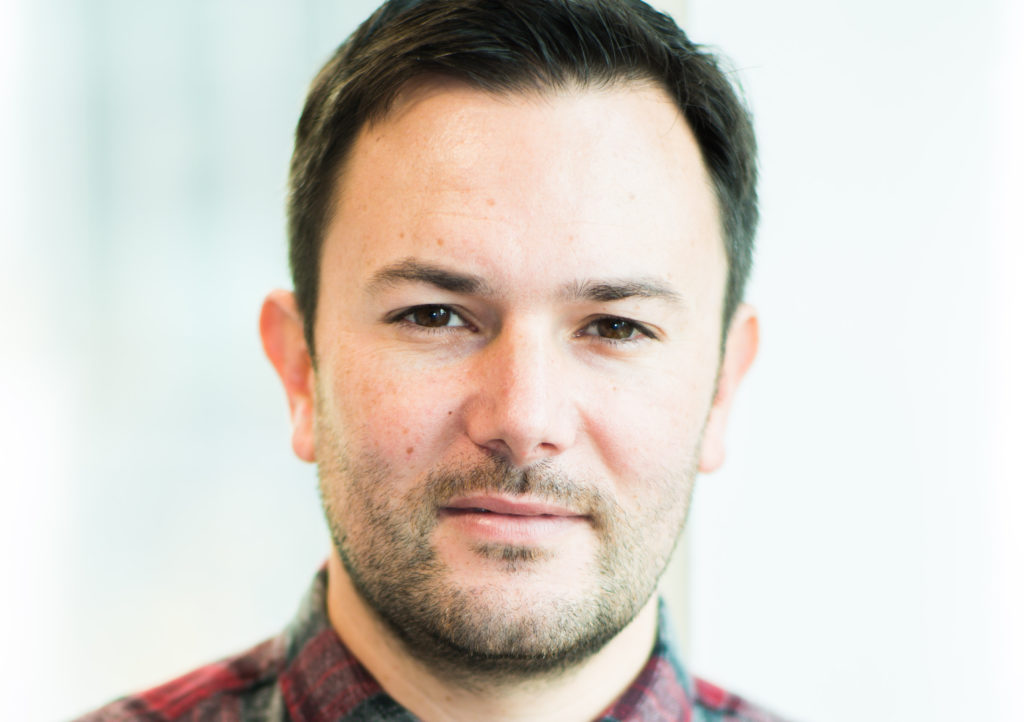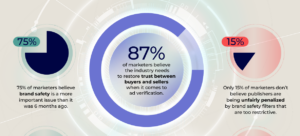With NDA’s Summer ‘Trinity Lunch’ fast approaching, we caught up with the leaders of businesses sponsoring the event. Here, we meet Ben Murphy, MD of Quantcast UK…
New Digital Age: What are the big priorities for your organisations this year?
Ben Murphy: The impending disappearance of the third-party cookie is the definitive challenge facing the digital advertising industry today. It has raised several critical questions and issues for advertising businesses to address including: privacy and consent, the outsized role of the tech giants/walled gardens and the future of advertising on the open internet
Indeed, according to research by Epsilon 80% of advertisers rely on third-party cookies to reach their target markets and more than two thirds (69%) believe their demise will have a bigger impact on the industry than GDPR. It’s probably not all that surprising to hear the industry is worried about the impending change and a ‘cookieless’ future, but it needn’t be that way.
No marketing strategy that relies solely on third-party cookies can be a complete one when so many prospects aren’t being reached. However, savvy marketers have already been testing the power of cookieless advertising to reach untapped audiences. They are also focused on more than a single approach to replace the third-party cookie, because the best cookieless solutions are built on first-party data, cohorts, contextual and more, using an AI-driven ensemble to understand audiences, value advertising, and measure results.
CTV saw huge growth through the pandemic and it is a massive opportunity for brands. It is enabling advertisers to make massive inroads into personalised advertising by exploring audience demographics, interests, and location. As with any new platform, it is now time to experiment and innovate new metrics that will show value and define its potential.
What are the biggest issues your clients/customers are facing at the moment?
Right now the biggest issues facing those in the digital advertising space are threefold.
Firstly, marketers should now be focusing on finding new, privacy-first ways to accurately understand and reach audiences at scale to remain relevant to consumers. Brands that make the move now and leave third-party cookies in the past, where they belong, will unquestionably gain a long-term competitive advantage and ensure they continue to get the most from their digital advertising campaigns.
Secondly, as we prepare for the next wave of digital evolution, there will be a massive shift in not just how we reach audiences but how we measure effectiveness. There’s a real opportunity for attention metrics to completely change the advertising landscape forever, making it much fairer and transparent. This, however, will not happen overnight and will require industry cooperation.
Finally, we’re also seeing brands leveraging new technologies like CTV but many are scrambling to figure out how to best reach audiences on this emerging channel. The latest debate is whether CTV measurement will mimic linear television measurement, or will marketers need to take a new approach? As CTV investment grows, brand leaders are going to want to know exactly where their ads are running and who they’re reaching.
Are your customers/partners prepared for the ‘cookieless’ marketing era?
Since Google made the announcement that it would be phasing out third party cookies, the concerns of marketers and advertisers have grown exponentially. However, already a quarter of internet users are unavailable to advertisers who rely on third-party cookies due to browsers such as Safari and Firefox banning them. This equates to more than 15.7 million people in the UK alone, and a staggering 1.23 billion people worldwide.
For most marketers, preparing now won’t just increase the resilience of their business, it will also provide access to new audiences before the competition even contemplates moving away from legacy processes. Forrester predicts brands focusing on AI will fuel 20% of media and advertising growth in 2022. I have to agree as the truth is, regardless of how the industry evolves in the coming years, the cookieless era is just around the corner and hundreds of marketers’ are advertising in cookieless environments today and seeing great results.
Are there any lingering after-effects of the pandemic still influencing your marketplace?
We’re still seeing the agency and ad tech world facing hiring challenges so retaining staff and increasing job satisfaction are increasingly important.
Digital skills, without a doubt, will be essential for the future of advertising. The pandemic’s impact on advertising was clear: global digital ad spend jumped by approximately 20% in 2021, while other forms of advertising experienced disappointing growth or decline. As the pace of change accelerates with technological innovation, professionals will confront a rising need to gain the new skills and competences required by the digital economy.
What we’re finding at the moment is that digital media team traders are spending too much time on planning, activation, campaign management, and reporting tasks and not enough working on more strategic projects and initiatives and increasing job satisfaction.
At the same time, we need to challenge ourselves to have greater diversity in digital advertising and we’ve got to stop recruiting from the same talent pool. The benefits of having a diverse workforce are clear. Already, having different perspectives makes teams stronger, because different viewpoints give birth to great ideas. What’s more, advertising is all about understanding the customer, the culture, and the landscape. Our world has never been more diverse, and also never more connected. To be able to grasp this new reality, you need to have that diversity of perspectives within your own team. It’s the key to success and longevity.
Are there any other noteworthy trends in your marketplace right now?
Responsible advertising has become top of mind as marketers take a more intentional approach to investing their budgets. Indeed, consumers have forced advertisers to be more conscious about ethics – from the content they use as well as the teams behind the campaigns and overall investments in media.
We’re also seeing a worrying trend in the consolidation of ad budgets, which fund content creation, into the hands of a handful of tech giants. This has made it more difficult for advertisers to fund the diverse content that we all rely on for news and information – with major implications for society. Over the next few years, I believe the industry is going to move towards prioritising advertising on the free and open internet and supporting the independent publishers who make it the incredible and diverse resource that it is.
From a personal perspective, is advertising getting better or worse?
For me, advertising is becoming more conscious so I think it is moving in the right direction. I believe the demise of the third-party cookie means there’s an opportunity for industry to do better and for us to build infrastructure with consent and better measurement at its heart. This, however, will not happen overnight and will require industry cooperation.
Quantcast is an advertising technology company and the creator of an innovative intelligent audience platform that empowers brands, agencies and publishers to know and grow their audiences online. The Quantcast Platform, powered by Ara™, a patented AI and machine learning engine, delivers automated insights, marketing performance, and results at scale to drive business growth.











